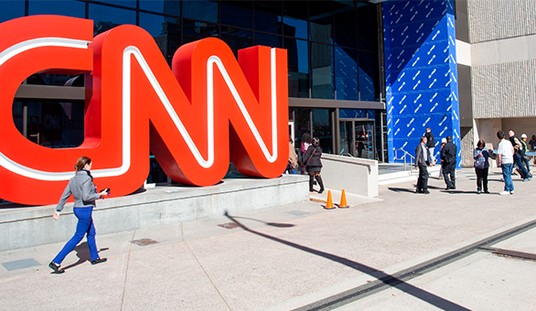Barack Obama is trying to do something no president has ever done: get re-elected without winning the national popular vote. If he were to somehow succeed at this, he would be the weakest elected president since Rutherford B. Hayes, and the lamest lame duck in American history.
Since popular vote totals were first recorded in 1824, four presidents have been elected while losing the popular vote (five, if you count John F. Kennedy in 1960). None were incumbents seeking re-election. And three of the four – George W. Bush in 2000, Benjamin Harrison in 1888, and John Quincy Adams in 1824 (as well as JFK) – could legitimately claim a different sort of mandate upon election: while they may not have won the popular vote, their parties won or kept control of the House of Representatives, the House of Congress that – unlike the Senate and the Electoral College – represents the people in roughly equal proportion:
Bush: 47.87% of the popular vote; 221-212 House majority; Republicans won House popular vote 47.3% to 47.0%.
JFK: 49.72% of the popular vote; 262-175 House majority; Democrats won House popular vote 54.4% to 44.8%.
Harrison: 47.8% of the popular vote; 179-152 House majority.
Adams: 30.92% of the popular vote; 109-104 House majority.
Harrison and JFK also brought to office commanding majorities in the Senate (Republicans gained twelve Senate seats in 1888 for a 51-37 majority; Democrats after the 1960 election had a 64-36 majority in the Senate).
Obama, even if elected, would undoubtedly face a re-elected Republican House majority, one that quite likely will have won a majority or at least a plurality of the popular vote and will have a stronger claim to a popular mandate than the president. The only president to lose the popular vote and have his party lose the House vote in the same year was Hayes in 1876, who lost the popular vote by 3 points and faced a 155-136 Democratic majority, but was able to resolve the disputed election by means of a thoroughly corrupt backroom deal to end the post-Civil War Reconstruction of the South and otherwise trade favors to the Democrats in exchange for counting the ‘carpetbagger’ electoral votes of Florida, South Carolina and Louisiana for the Republicans and ignoring Democratic votes on grounds of ‘voter suppression.’ Unsurprisingly, Hayes was a famously ineffective president as a result, best known today for mediating a dispute between Paraguay and Argentina. His domestic agenda of civil service reform and civil rights protections went nowhere, and Congress overrode his veto of a major currency bill and left one of his Supreme Court appointments without a floor vote until after Hayes left office. He did not seek re-election.
Nixon in 1968 would be the closest modern analogue, winning the popular vote by 0.7% (with 43.42% of the vote) in a 3-way race while Democrats held a 243-192 House majority and won the House popular vote 50% to 48.2%. Nixon, of course, followed a resolutely liberal domestic policy the next four years, and his efforts to retain executive powers outside House Democratic control came to ultimate grief.
Turning to presidents seeking re-election, only three have been re-elected by a popular vote margin of less than 6 points: Bush in 2004 (2.46 points), Wilson in 1916 (3.12 points), and Truman in 1948 (4.48 points), and one of those three (Bush) won a majority of the popular vote (besides Truman and Wilson, Bill Clinton in 1996 is the only other president re-elected without a popular vote majority). But Truman saw his party seize majorities in both the House and Senate away from the Republicans. Bush won a popular vote majority, expanded his share of the popular vote, added 12 million votes more than he won in 2000, and saw the GOP expand its House majority to 30 seats. His second term nonetheless ended in political disaster for his party. Only Wilson, of the three, lost partisan control of the House (by one seat), but the Democrats were able to retain their majority by forming a coalition with Socialist and Progressive members. While World War I dominated Wilson’s next two years (elected on the slogan “He Kept Us Out Of War,” Wilson took the country into the war 31 days after the start of his second term), it ended in total political disaster, with Republicans blocking Wilson’s treasured League of Nations plan and the uninspiring Warren G. Harding winning the largest popular majority in American history in 1920 just by promising a “Return to Normalcy.” Democrats would not regain their House majority until 1930, the White House until 1932. None of this bodes well for Obama’s ability to govern or lead his party if he was somehow able to squeeze re-election out of the Electoral College.
Of course, there are reasons – the courts, the administrative agencies – why ideological liberals should want Obama to win, no matter how weakened his condition. But given that Obama would enter a second term as a crippled lame duck with no experience knowing how to cut bipartisan deals, you have to wonder why anyone else – viewing the challenges facing the nation the next four years – would want him to continue in office in such circumstances.
(A final note, of prediction: If the Romney-Ryan ticket wins a popular vote majority, wins Florida, Virginia and New Hampshire, and the GOP holds its House majority, but Obama improbably holds the White House on the strength of Nevada and the industrial Midwest, there will be enormous momentum within the Republican party to clear the 2016 primary field for Paul Ryan).














Join the conversation as a VIP Member